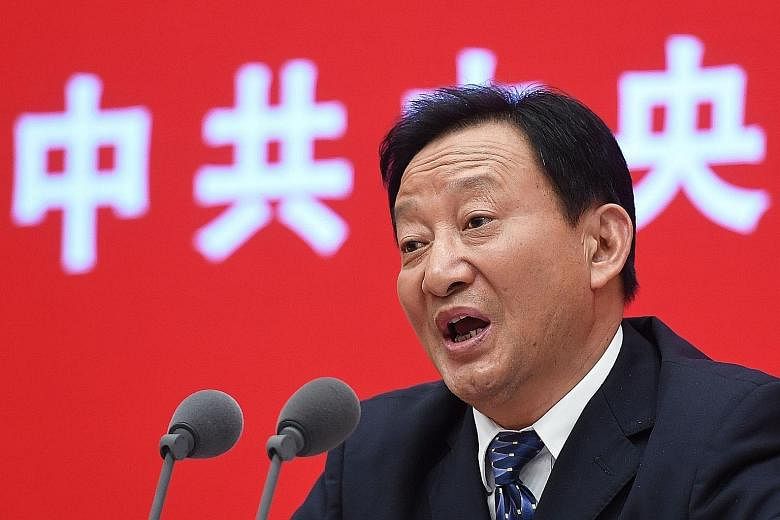China is at a critical juncture as it faces profound global changes that have complicated its rise, said its senior leaders who have now charted a course for the country that puts greater power in the hands of the Chinese Communist Party.
Top officials who gathered at a high-level conclave that ended on Thursday agreed China needed to put more effort into opening up its economy, step up supervision of its bureaucrats to prevent corruption, and toughen up those who are ill-equipped to deal with their rapidly changing environment.
They also discussed the US-China trade war, political unrest in Hong Kong and China's slowing economy, although no policy updates were announced.
Instead, a communique issued at the end of the four-day summit reinforced the Communist Party as the authority and unifying force that will lead the country in facing down mounting challenges both internally and externally.
"In a big country like China, without the leadership of the Communist Party, the country would fall apart and accomplish nothing," Mr Jiang Jinquan, a deputy director of the party's Central Committee policy research office, told reporters yesterday at a news conference.
The committee, a political body of the most senior party leaders, meets at least once a year at a plenary session to talk about policy issues.
Among the decisions taken at this week's key meeting was that China must ramp up efforts to open its economy further, by boosting the less-developed non-coastal areas, setting up more free ports and free trade zones, and diversifying its trade.
It will also ease market access to industries from manufacturing, services and agriculture to telecommunications and education, said Mr Han Wenxiu, deputy director at the Office of the Central Financial and Economic Affairs Commission.
Addressing the oft-cited criticism that Chinese state-owned enterprises distort the market because of the preferential treatment they receive from the government, Mr Han maintained that these companies have "become ordinary market entities".
Rattling off a litany of reforms that have been undertaken to shake up these enterprises, Mr Han said: "State-owned enterprises don't have natural advantage or strength.
"They must enhance their competitiveness and ability to innovate, then only can they survive in the Chinese and international markets."
A protracted trade war with the US has taken a toll on China, with official data released on Thursday showing a contraction in factory activity for a sixth straight month in October.
Government subsidies for state-owned enterprises are among the main bugbears of the US and a sticking point in the trade negotiations between the two countries.
Yesterday, officials also acknowledged other "weak points" in the bureaucracy, such as the ineptitude of some government servants and the problem of graft, and said there will be better systems to deal with them.
"The world is evolving rapidly and some officials lack the ability to adapt and learn," said Mr Jiang. "There is room for improvement."
The plenum also decided on stronger oversight so officials "dare not or have no desire to be corrupt", said Mr Jiang.
One of the measures is to "intensify study sessions" so officials "build moral defences against corruption", he said.

